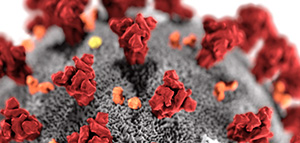What does the syllabus consist of?
Topics
Learners and teachers, and the teaching and learning context
This topic includes:
-
Understanding the cultural and linguistic backgrounds of learners, and how this might affect their learning of English.
-
Understanding different learning styles and preferences.
Language analysis and awareness
This topic includes:
-
Understanding key terminology used in English language teaching, applying this terminology in planning and teaching.
-
Demonstrating a working knowledge of English grammar, lexis and phonology.
Language skills: reading, listening, speaking and writing
This topic includes:
-
Understanding basic concepts and terminology used for describing reading, listening, speaking and writing skills, applying this to teaching.
-
Understanding how approaches to texts may vary depending on the purpose, making practical use of this in teaching.
Planning and resources for different teaching contexts
This topic includes:
-
Understanding the purpose and principles of planning for effective teaching.
-
Selecting and planning the kinds of lessons that are most appropriate for particular learners.
-
Evaluating lesson preparation and reflecting on this for planning future lessons.
Developing teaching skills and professionalism
This topic includes:
-
Effectively organising the classroom, both in terms of layout and pair/group activities.
-
Making appropriate use of a range of materials and resources.
-
Involving learners of different ability levels, enabling them to feel a sense of progress.
How will you be assessed?
You will be assessed throughout the course and there is no final examination. The two types of assessment are:
1. Teaching practice
You will teach for a total of 6 hours, working with adult classes at a minimum of two levels of ability. Assessment is based on your overall performance.
2. Written assignments
You will complete four written assignments (each 750–1,000 words). These focus on:
-
Analysing and responding to adult learners' needs.
-
Analysing language for teaching purposes.
-
Teaching language skills.
-
Reflecting on classroom teaching.
What does the syllabus consist of?
What does the syllabus consist of?
What does the syllabus consist of?
TopicsLearners and teachers, and the teaching and learning contextThis topic includes:Understanding the cultural and linguistic backgrounds of learners, and how this might affect their learning of English.Understanding different learning styles and preferences.Language analysis and awarenessThis topic includes:Understanding key terminology used in English language teaching, applying this terminology in planning and teaching.Demonstrating a working knowledge of English grammar, lexis and phonology.Language skills: reading, listening, speaking and writingThis topic includes:Understanding basic concepts and terminology used for describing reading, listening, speaking and writing skills, applying this to teaching.Understanding how approaches to texts may vary depending on the purpose, making practical use of this in teaching.Planning and resources for different teaching contextsThis topic includes:Understanding the purpose and principles of planning for effective teaching.Selecting and planning the kinds of lessons that are most appropriate for particular learners.Evaluating lesson preparation and reflecting on this for planning future lessons.Developing teaching skills and professionalismThis topic includes:Effectively organising the classroom, both in terms of layout and pair/group activities.Making appropriate use of a range of materials and resources.Involving learners of different ability levels, enabling them to feel a sense of progress.How will you be assessed?You will be assessed throughout the course and there is no final examination. The two types of assessment are: 1. Teaching practice You will teach for a total of 6 hours, working with adult classes at a minimum of two levels of ability. Assessment is based on your overall performance. 2. Written assignmentsYou will complete four written assignments (each 750–1,000 words). These focus on:Analysing and responding to adult learners' needs.Analysing language for teaching purposes.Teaching language skills.Reflecting on classroom teaching.

-
Research Centers
With the growing emphasis on collaborative and interdisciplinary science, Research Centers have become indispensable to highly ranked universities. They gain their importance from the outstanding role they play in enhancing the academic activities, in general, and post graduate reputation and scientific ranking in particular. Realizing this fact, Future University in Egypt (FUE) have decided and allocated sufficient funds and infrastructure to establish FUE Research Center (FUERC) having the following vision, mission, and goals
read more
-
Continuing Education
Future University in Egypt’s Department of Continuing Education (DCE) is dedicated to bridging the gap between the capabilities
read more
-
FUE Pharmaceutical Factory
The Future Factory for Industrial Training’s (FFIT) aim is to be recognized for its unique training facility as well as its advanced techniques. As a result, we established a training pharmaceutical plant, that provides an actual simulation of an industrial atmosphere with the processes and procedures that take place in the manufacturing world.
read more
-
FUE Dental Hospital
FUE has maintained a highly reputable dental faculty over the years, therefore the development of the Dental Hospital is a step towards the FUE goal of providing the best dental academic programs
read more

Community service unit at Faculty of Pharmaceutical Sciences and Pharmaceutical Industries, launches Q&A about Covid-19.
COVID-19 Awareness
FUEscientificJournals
VISIT FUE
